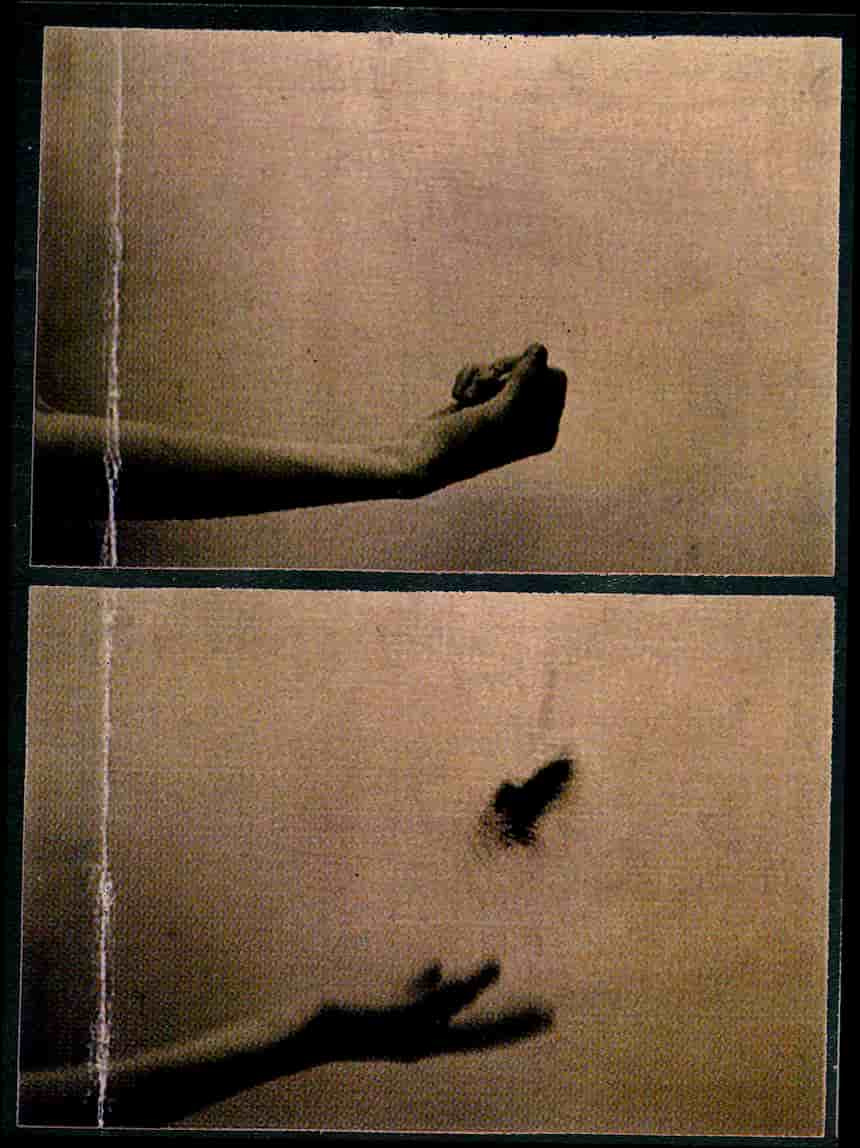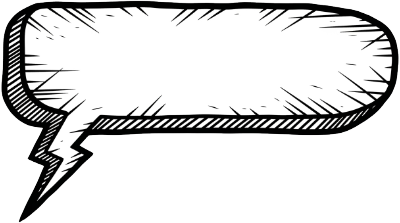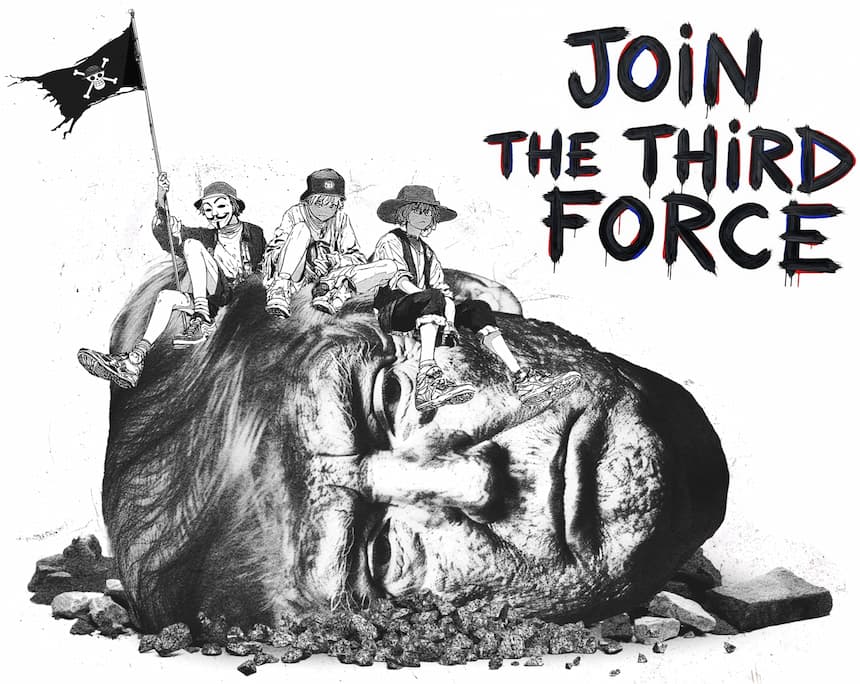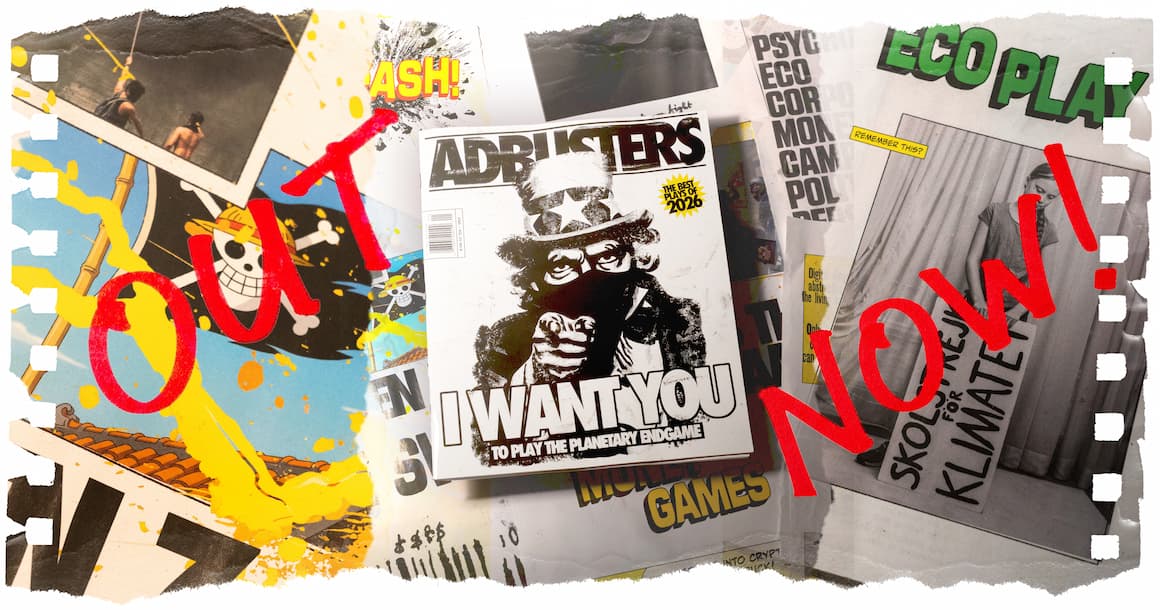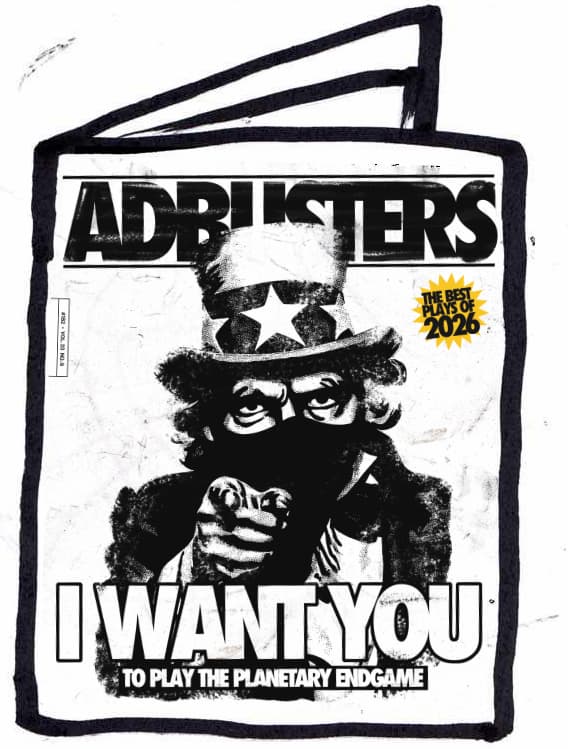

When consumer culture collided with the digital environment, something new emerged. Something new but ancient: a plague. Only this one isn’t attacking bodies. It’s attacking minds.
We are all addicts now, with devastating mental-health effects. The only way to break the cycle is by voluntarily taking on the pain of doing without.
[PSYCHO]
Smooth apes with brains still wired for scarcity are lurching around in a world of plenty.
[selfie-click]
And by plenty, we’re talking overabundance. Wishes instantly fulfilled. More calories within reach than our ancestors could have chased down in a month.
See, life is paradox, and the paradox of plenty is this: You’d think that instantly gratified desires would be a recipe for happiness. But the opposite is true.

Meet Stanford psychiatrist Anna Lembke. She’s an addiction-research specialist who also maintains a private practice. Her clients are mostly Silicon Valley IT executives and academics and entrepreneurs. The winners of the game, in other words. The richest slice of the richest population that ever lived. Yet they don’t feel like winners. They report that their mental health has cratered.
And they’re not alone. Why should it be that depression, anxiety and suicide are rising fastest in the richest nations in the world?
“He who helps himself to pleasure is dead while he is alive,” said St. Francis, but we don’t need religious explanations here. We don’t even have to reach for deep, existential meanings. It’s much simpler than that. It’s biochemistry 101. The easy bounty of high-reward substances has fucked with our reward pathways.
This is the story of a molecule called dopamine — the neurotransmitter linked not just to pleasure but to our motivation to keep it coming.
On the savannah, we might have had to walk for days for a squirt of the stuff — maybe we’d find a fig tree with a few luscious morsels. Yum: payoff. Now we get the payoff without the hunt. Salt, fat, sugar ‘n spice — right in your face, on the buffet table of consumer culture. Everything but the crumb-scraper — and if you want that too, click now and an Amazon driver will drop it on your doorstep before the sun goes down. All dopamine, all the time.
Here’s what happens when you get too much of a good thing too quickly: a mechanism kicks in to try to restore balance. Dopamine is sloshing around. So our brains slash production, not just back to baseline levels but to well below them. Which sets up a feedback loop: craving and gorging, repeat. “Which makes us all more depressed, more irritable,” Lembke said, “and less able to take joy from the things that used to give us joy — the things that have given people joy for generations.” Even the smallest deprivations now hurt like hell.
The mismatch between the world we were designed for and the pigpen we built for ourselves means every one of us fights private battles every day. And Lembke believes this will be our new normal for the foreseeable future — hundreds and hundreds of years. Unless we hatch a new plan in a big hurry — some new way to live.
“I actually think that our existence is going to be reliant upon figuring out how to navigate this world of overabundance.”
The good news? The body knows how to calibrate itself. The bad news is first you have to do your part: by sacrificing a little on the front end.
“I’m recommending a new form of asceticism for the modern age,” Lembke said. “In order to be healthy, we actually have to veer slightly to the side of pain, and insulate ourselves from pleasure in order to preserve balance.”
My god. A friggin’ betrayal of the American promise, man. Cuts against everything the forebears fought for.
Asceticism. Pfft. What kind of new bullshit story is this?
*
Actually it’s an old story. Maybe the oldest story. It’s close to a grand unifying theory of life, one that’s encoded in our DNA. Our genes reward us for self-restraint. Moderate hardship is linked to human flourishing in the long run. Exhibit one: voluntary caloric restriction — the only proven way to extend the human lifespan. Exhibit two: Icelanders — who are among the longest-lived people on the planet. “This fucking wet rock in the North Atlantic has been punishing us relentlessly for the last eleven hundred years,” said a Harvard neurologist who returned to his native Iceland to study the genetics of his people. Hard living, he determined, has made them stronger at the cellular level.
People are like kites. Against resistance, we rise. A steady tailwind drives us into the ground.
What if the same logic applied to our economic and social systems? And the New Asceticism was a kind of super- code for surviving into the 22nd century and beyond?
[ECONO]
“Any intelligent fool can make things bigger and more complex,” the economist E.F. Schumacher said. “It takes a touch of genius — and a lot of courage to move in the opposite direction.”
What might the New Asceticism look like in rich Western nations, where neoliberal economics runs the show, and growth is God? The de-growth movement says the answer is obvious: it’ll look like a mass shift to a less energy-intensive lifestyle.
Now you’re going shit man, that sounds like no life at all: everybody eating pulses and washing their dishes in the shower. And guilting out that every time they cook with gas they’re melting the ice caps (and supporting the war in Ukraine).
But here’s a more appealing way to think of it. This doesn’t have to be a Bataan Death March of sacrifice. The idea of “progress” doesn’t have to be dumped — just reframed. We can still grow, just differently. Not in quantity but in quality.
From “more” to “less-but-better”.
Imagine you get a bracing call from your doc. She found something on an x-ray. Looks like you have a short time to live.
So how do you choose to spend your remaining weeks? Gorging on wagyu beef whilst crisscrossing the country in a big-ass limo? Hiring the Foo Fighters to play in your backyard? You could go crash-and-burn crazy. But most of us wouldn’t. We’d keep things simple. Surround ourselves with loved ones. Maybe get into the woods. Drink little nicer wine.
Well: that’s all of us now. We’re all walking the Green Mile. Picnicking in an active volcano. So peace can only come not from piling on more crap but by paring it away. And curating our existing crap. It’s really not about going without; it’s about learning to derive value from things differently — in a way that elevates you by freeing you from clutter and chaos. It’s setting up your life so that you live on the interest without touching the principal.
It’s not that you shouldn’t own things; it’s that things shouldn’t own you.
*
Not long ago, the MIT sociologist Sherry Turkle invited college students into her lab and asked them, for the love of Zeus, why? Why do you prefer to communicate through texting instead of face-to-face? The number one answer was: so that they can control the message. So there can be no misunderstandings, no mistakes, no embarrassing social fails — no blushing, no hardons, no spinach in the teeth.
In other words: we prefer connecting online because it’s easier. It’s easier to drink through a straw than to take a fire hose in the face. And that’s what life feels like, a lot of the time: taking a fire hose in the face. Who wouldn’t want to avoid that?
This is where all our high-tech tools step in to help: they help us avoid the rough stuff. They make life easier. They reduce friction. They create shortcuts. Don’t blame the tools: that’s their job. We created them to do exactly that: to smooth the bumps. And while it’s true that some smoothing is appreciated — we wouldn’t want a world with no wheels, no levers, no computers, no anesthetic — what’s forgotten is what we gave up in the bargain. We got nudged down the path of least resistance. Tech trains us to prefer the easy thing. To take shortcuts and speak in cliches and respond to what the disabled activist Chloe Cooper Jones calls “easy beauty.”
So we prefer to live online. Because it’s easier.
But when you think about it, living online is really just another kind of “overconsumption” — diving into everything, everywhere all at once.
So what’s the solution? The most obvious immediate fix is the one everyone finds the hardest: Just stop. Unhitch the feedbag from your eyes and step back. Boredom is a motivational state; the discomfort you feel is your brain kicking you in the butt and going: Make something happen!
Now you have committed an act of self-liberation. Because now you are in a position to make something happen. Namely:
Create your own private attention economy.
It starts with noticing fleeting things — the difference between this present instant and a moment ago. The psychologist Ellen Langer calls paying attention this way simply being “mindful.” Mindfulness is the new asceticism. The reward is in being surprised by what was there all along, right under our noses, like an unclaimed lottery ticket. We don’t need to extract more. There is plenty here already.
This becomes the new definition of wealth. The old definition was sitting on a chunk of money that grows faster than average income —so by doing nothing you’re pulling farther and farther ahead of the folks who have no wealth and are working their butts off. We now know there are hidden costs in living like that. They’re etched in the faces of Anna Lembke’s clients in her psychiatrist’s office in the Bay Area. You cannot really enjoy what you haven’t rightly earned. The old, unearned wealth beats under the floorboards like Poe’s “telltale heart” even while you sleep. The new wealth is what the economist Nicholas Georgescu-Roegan called existence itself: it is a free gift from the sun.
[AESTHETICO]
The vibe of the 21st century is ... restraint.
Anybody buying that? It’s not a very sexy proposition.
So let’s reframe it. Restraint is different from self-denial. It’s closer to a kind of realignment of your desires to your values and your genuine needs.
The new asceticism is not a bald plea for anti- materialistic minimalism. It's not a Biblical injunction to stop coveting things. It’s an invitation to prioritize different kinds of things: things that aren’t strictly practical. They may not have much resale value. They are personal, and that is their currency. They modulate your mood and mindset and sense of purpose. They’re the things you’d rescue first if your house was on fire.
Through the pandemic, a new vibe emerged around employment. People all around the world started just saying ... fuck it. An existential scare will do that to you. The prospect of a shorter life brings your priorities into sharp belief.
Suddenly your donkey-work job just doesn’t seem worth the monumental sacrifice of your time. So people opted out.
But here’s what’s sometimes misunderstood: all those people who were and still are “lying flat” and “quietly quitting” aren’t lazy. These are protest movements. They’re a vote against dysfunctional systems and carceral labor practices. Few people object to working hard on their own terms at something they find meaningful. In fact, giving an honest day’s labor doing something you and other people value is one of life’s greatest sources of satisfaction.
What sucks is being denied that opportunity — by a capitalist shell-game that nudges too many folks to do shit jobs under inhumane conditions. That is what’s massively demotivating. Every bit as demotivating as the other extreme — getting something for nothing. (That dopamine firehose.) Being challenged rocks. Being exploited doesn’t. The difference is agency. And agency is the very spine of the new asceticism.
The vibe coming up behind “opting out” will be “opting in.” Leaning in to projects that pluck the strings of your own values, not somebody else’s agenda. “It isn’t work when you enjoy it,” said a friend who seems to be perpetually fixing something or building something or cultivating something — often pretty strenuously and in conditions that look (to me) pretty uncomfortable. The trick comes in resisting the siren tug of the immediate indulgence, whose payoff is so often a devil’s deal.
[POLITICO]
The new asceticism is beyond Left and Right
Left and Right are abstractions. They have some value in helping us organize our ideas and our beliefs, in sorting out how we feel about this or that issue, but they do a disservice to the human beings we’ve labeled “progressive” or “conservative.” Human beings are not abstractions. They are the guy across the Thanksgiving Table with a bit of brussel sprout in his mustache. His politics are not yours, but his basic existential yearnings are. “True community,” said Tish Harrison Warren in her farewell column for The New York Times, “is made up of real people ... of friends with true faults ... of the local, the small. The places we ... become human are not primarily in debates about culture wars or the role of religion in society.” They are holding the baby so a mom can fish out her wallet at the grocery till. They are saying gesundheit to a stranger when she sneezes. They are the impossibly tiny accommodations we make for each other, and it’s an insult to our humanity to lay political abstractions over these things.
Anna Lembke, the Stanford psychiatrist, has watched her book Dopamine Nation take off as everybody has their own oh-shit moment with it, that mirror held up to karmic arithmetic of their own piggish excesses. She’s been invited to speak on both NPR and on Fox. The message soars above political divisions and speaks to something universal in the human animal.
Lembke reminds that substances and behaviors we become addicted to have the consequence of driving us into isolation. Essentially, the drug has come to replace the thing that we really want (but fear we can’t have): love and belonging. And those are things nobody owns, or ever can.
*
Licking honey off a razor
Maybe, as part of the vibe of the new asceticism, we’ll start to consider the spiritual dimension of the damage that habitual indulgence and lack of self-control does to — let’s just say it — our souls.
Addictive behavior, the Tibetan Buddhists say, is like “licking honey off a razor” — sweet, but you pay for it.
Buddhism resonates with the new aestheticism; it trains us to still our monkey minds, put a name to our unproductive cravings and let them go. But every major religion has valuable counsel on self-restraint.
Taoism teaches us to go with the flow, not fight it.
Stoicism teaches us to understand that we are worrying about the wrong things — the “modern contest” (of incremental status gains over your neighbor) ain’t what it’s cracked up to be. (Certainly not what social media promotes it to be.)
Christianity at its root — below the prosperity ethic hatched by its pr department — trains us to give the shirt off our back.
Jews get down to their work of tikkun olam: healing the broken world.
All real religions are different paths to the same waterfall. These are non-commercial paths, with spiritual guardrails against excess and greed built in.
And they are beyond politics.
*
“The motto of twentieth century capitalism was Go Big or Go Home,” wrote Harrison Warren. Maybe we should revise that to:
Go Deep or Go Home.
“This deepening “requires times of interiority, contemplation, rigor, and ... invisibility.”
The internet gave everyone a megaphone, and so the last quarter century has been about everyone finding their voice. Okay, we’ve found it. We have, every one of us, done a lot of yakking. We’re yakked out. So now we reduce our carbon emissions an infinitesimally small (but spiritually significant) amount by ... just shutting our gobs.
Less talk, more listening and thinking. That too is part of the new asceticism.
There is a Japanese word, “misogi.” It basically means “doing hard things because they are hard.” The word comes from an ancient Shinto purification ritual. In it, participants approach an ice-cold waterfall in the middle of the night. They fortify themselves with a little sake and then step into the stream, chanting, through their gasps, the phrase harai tamae kiyome tamae rokkon shōjō. They are asking the spirits to wash out the impurity from all six elements that make up human beings — the five senses and the mind.
The payoffs of the misogi ritual supposedly happen at the level of character and spirit. But they are as new and relevant as the breakthroughs in neuroscience that light up Anna Lembke.
And as timeless as our most foundational wisdom traditions.
Both Stoicism and Buddhism throw in with austerity and simplicity and living in sync with nature. That counsel has not grown stale over the millennia. On the contrary. It has matured. It stands as the best single blueprint that gives us a shot.
So there you have it.
We take a little pain and our bodies reward us for it, instead of punishing us for our pleasure.
We take a little pain as a culture and our ecosystems reward us for it, instead of punishing us for our greed.
We take a little pain in order to stay above the grass, as a species, for just a little longer.
Until one day we realize we’ve been using the wrong language around all this. What we called “sucking it up” is really just “pulling together.”
—Harry Flood




